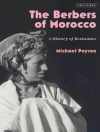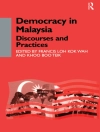Candles in the Dark is an international compendium of essays that share a sense of the importance of introducing ethical and spiritual concepts and values into the public discourse on progress and globalization issues. They offer a new approach to international relations and public policy that esteems the human spirit and dignity as central values in decision making, seeks links between self interest and the common good, and introduces, in a practical way, philosophical, spiritual, and cultural perspectives in the political discourse on global political and socioeconomic problems.
Inhaltsverzeichnis
Acknowledgments
Notes on Contributors
Message from the Secretary General of the United Nations
Foreword
A NEW SPIRIT FOR A PLURAL WORLD
Introduction
PART ONE: THE NEED FOR A POLITICAL RENAISSANCE
Global Ethics in a Plural World
Secularism, Globalization, and the Role of the State: A Plea for Renewal
Rethinking the ‚Four Freedoms‘ for the Global Community
What Can Be Wrong with Growth?
PART TWO: PERSPECTIVES FROM RELIGIOUS AND PHILOSOPHICAL TRADITIONS
Benedictine Spirituality: A Basis for Reevaluating Modern Development Trends
Confucian Humanism and the Western Enlightenment
Essence and Continuity of Life in the African Society
Return of the ‚Native‘
Unity Between the Values of Truth, Goodness, and Beauty
PART THREE: INSIGHTS FROM ART, LANGUAGE AND LITERATURE
Towards Noosphere
Progress: A Tale of Galoshes of Fortune and of a Shoe that Fits
Philosophical Reflection on the Path of Art
The Dynamic Now – A Poet’s Counsel
PART FOUR: VALUES FOR A GLOBAL SOCIETY
The Moral Power of the United Nations
Development Reflecting Human Values
Language and the Human Spirit
Values and Leadership in Managing High Performance Financial Firms
Principles in the Practice of Diplomacy: A Personal Experience in International Affairs
Ethics in Diplomacy: Crises of Conscience and Self-Interest
Epilogue
Über den Autor
Barbara Sundberg Baudot is a professor of politics at Saint Anselm College in Manchester, New Hampshire; she has served in many capacities in the United Nations. The contributors represent a wide spectrum of scholarship, practical experience, and cultural histories, faiths, and philosophies, and include professors in various disciplines as well as practitioners in politics, public policy, diplomacy, development, and international business.












